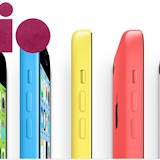
CEO of AT&T, Randall Stephenson, has claimed that an American operator will likely produce a data-only smartphone plan within the next 24 months. While it’s true that users can already opt for a form of plan that excludes monthly payments for text and calls, any incoming call or text on that data-only SIM would incur some pretty serious overage fees. What’s now being suggested by Stephenson sounds like a data-only plan that would either allow for calls and texts to be received without overage fees, or one that would completely block-out any form of non-web-based communication.
Either plan would represent a significant step in mobile communication technologies, as it would be a solid acknowledgement by a major carrier that the internet is the future of all communications. Not only that, but it would infer that said future is close enough that carriers will need to start establishing themselves as forerunners of a predominantly web-based national mobile communication service.
While we have little doubt that web-based communication is the future and that current forms of carrier-supported calls & texts will eventually fall by the wayside, we’re doubtful that data-only plans for smartphones will be particularly useful for the larger percentage of users within the next 24 months.
Our reason for believing this is simple. Just think of the number of times you’ve had enough reception to send a text or make a phone call, but haven’t had enough internet connectivity to check Facebook, check emails or play a game that requires an active internet connection. Even within major cities wireless broadband is still just too inconsistent to rely upon solely for communication.
It is true that we’re seeing technologies like 4G LTE spread like wildfire across the US, especially if you take Verizon Wireless’ quickly expanding network as an example. However, 4G LTE is currently still more about speed than broad coverage. LTE actually has a very short range around each tower within which signal strength can be maintained, as such 4G strengths vary wildly within supported areas.
Traditional 3G could almost take the place of SMS, but with the major carriers involved in the 4G race the spread of reliable 3G to unsupported or under-supported areas has slowed. There is also the aforementioned issue of signal drop-outs. This is less of a concern when it comes to text than talk, but currently 3G is still a much more unreliable format than traditional SMS.
As far as talk services go 3G doesn’t really cut it most of the time either. Yes, 3G can provide solid voice clarity over VOIP services like Skype, but only in areas where the signal is strongest. Once you go down to areas with less signal strength, or areas with more interference, then Skype and other VOIP services lose a lose a lot of their viability.
Of course Stephenson was talking about these data-only plans coming in over the next two years and in that time we expect wireless broadband connectivity within the US to improve, but probably not to the point where most users will find it useful to switch entirely to data plans.
There will certainly be the odd customer that would benefit from a data-only plan, especially if that plan allows for standard calls and texts to be received over traditional networks. Increasingly people are using smartphones more as a portable computer, with the ‘phone’ aspect beginning to take more of a back-seat. People who live in well-supported wireless areas, or people with less-active social lives, may actually see a benefit with data-only plans.
As such we’re in no way against the idea of carriers beginning to support this kind of thing; we actually think it’s a great idea. However, it’s important to see this move for what it is and to not go overboard. We’re still a long way off from the greater part of the US ditching GSM and CDMA networks for communication.
While a data-only plan would represent the increasing viability of the internet as an all-encompassing communication medium it’s still really only viable for some. Most of us will likely have to stick with traditional talk & text for some time yet, but we’re sure that the future of internet-focused smartphones will get here eventually.
Related Articles
Find Better Phones and Plans
Hundreds of cell phone plans unpacked. All the facts. No surprises.



































